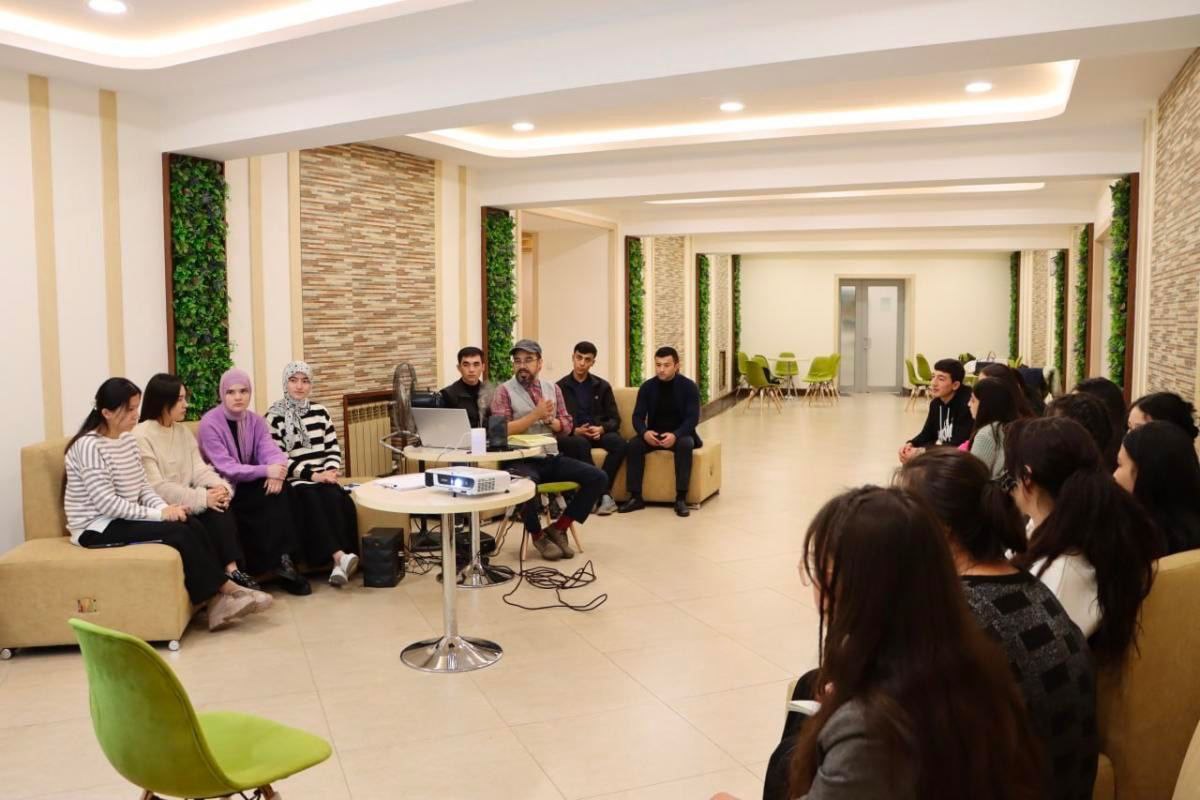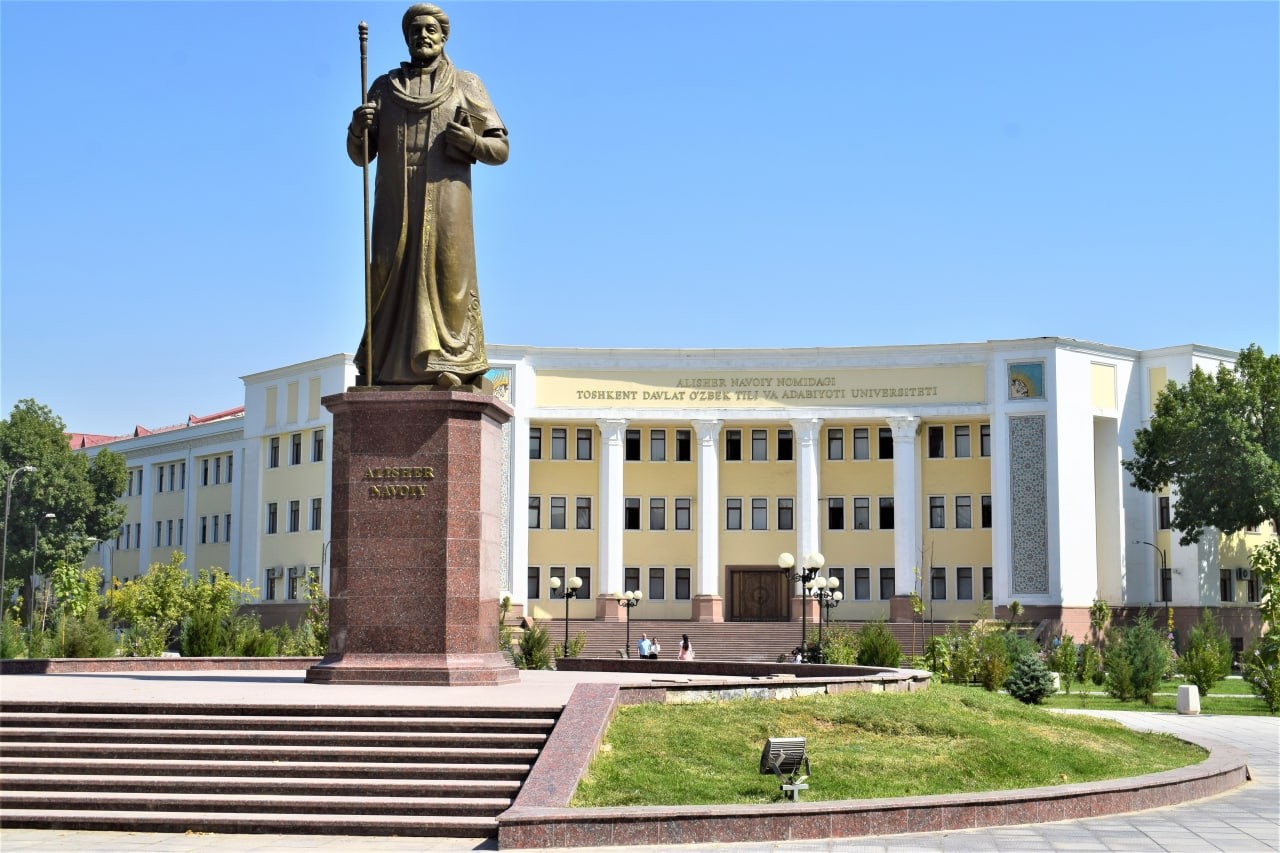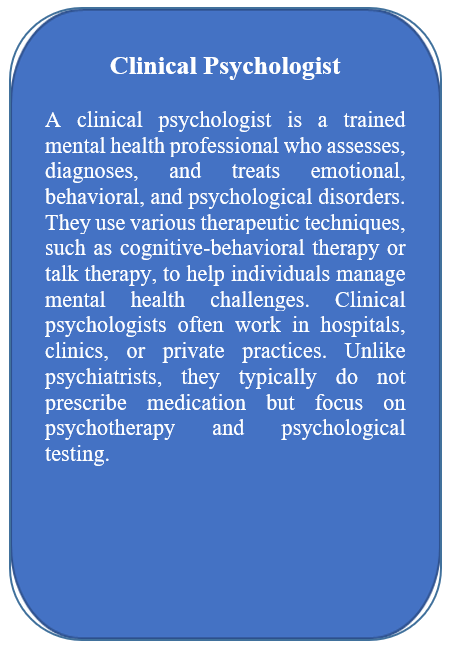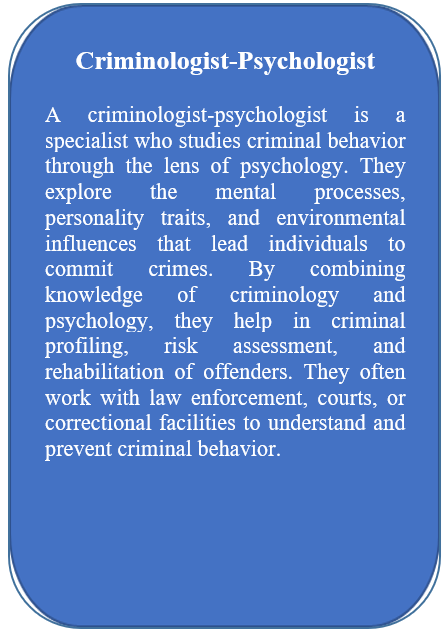Psychology
This field of study falls within the domain of social and behavioral sciences and pertains to the education sector. It encompasses work in both public and private institutions of preschool, general secondary, secondary special, and vocational education. Graduates can teach subjects related to the field in educational institutions; work in mass media, state and local government bodies, various types of property, industrial and business organizations; provide psychological assistance in private psychological service centers; guide students in choosing professional careers and conduct psychodiagnostic activities at the Republican Center for Psychological and Pedagogical Diagnostics.
Additionally, it includes providing psychological services within self-governing bodies, at the “Family and Women” Research Institute, in rehabilitation centers, and to sports teams; offering psychological assistance in military units under the Ministry of Defense and in law enforcement agencies—covering a wide range of complex tasks related to psychological support.
The curriculum includes analyzing the psychological characteristics, patterns, and properties of the cognitive, conative, and emotional-affective spheres of the psyche; examining theoretical approaches; organizing and conducting psychological experiments; selecting and applying methodologies; using methods for processing results and interpreting them.
During practical training, students gain experience in diagnosing, evaluating, and improving psychological indicators, processes, and relationships; organizing psychological services; applying psychological methods to solve problems; integrating international and local experiences in psychological research; and implementing research findings into practice.
Director of Academic Program
Dr Ilhom Arslonov
Study Mode
Four years full time
Program Structure
This program includes 162 credits of compulsory subjects, 40 credits of elective subjects, 23 credits of internship (professional practice), and 15 credits for the final state certification.

Modular Learning
Launching in 2025
Alisher Navoi Tashkent State University of Uzbek Language and Literature (TSUULL) is set to introduce modular learning at the University starting in 2025, offering a flexible

This course provides in-depth knowledge of computer systems, software development, and data management. It covers the following areas: programming, network administration, cybersecurity, database design, and artificial intelligence.
The course explores key issues in the modern history of Uzbekistan. It aims to strengthen students’ worldview, foster understanding of the idea of national independence, and enable them to critically assess ongoing events. Students will develop an awareness of the role of history in shaping society and the individual, and will learn to connect current developments to significant historical events.
This course develops students' general psychological knowledge and helps them understand how events in society relate to internal psychological processes. It trains students to analyze general psychological phenomena and processes, understand the factors influencing personality development, and explore emotional and volitional traits of individuals.
This subject shapes students’ understanding of the psychologist’s professional and personal qualities, the role of psychologists in society, and the specific features of psychological practice. It aims to build strong motivation for the field, systematize students’ knowledge, foster group collaboration, and enhance learning through innovative pedagogical technologies.
This course develops general knowledge in physical training, sports, and wellness sciences. Core areas include exercise physiology, sports psychology, biomechanics, coaching techniques, and sports management.
Students gain knowledge of the theoretical and historical foundations of modern pedagogy and teaching skills. The course teaches how to effectively organize educational processes in accordance with the Law on Education of the Republic of Uzbekistan, how to utilize pedagogical heritage, and how to apply advanced teaching techniques in real educational settings.
This course plays a crucial role in psychological research. It covers essential mathematical concepts for psychologists, including statistics, probability theory, mathematical modeling, and data processing methods. Special emphasis is placed on applying mathematical tools in psychological surveys and correlation studies. Mastery of these tools helps psychologists gather objective data, identify hidden patterns, and draw well-grounded conclusions. Thus, higher mathematics is an integral part of empirical psychology and contributes to the advancement of psychological research.
Philosophy and psychology are closely related disciplines that study general concepts about the psyche, human beings and existence, the universe and humanity, knowledge and reality. For psychologists, philosophy is not only a theoretical foundation but also an important source for understanding research methodology and conceptual psychological approaches.
Language is one of the main social institutions of society, playing a vital role in communication between people, transmitting cultural heritage, and shaping social structures. The Uzbek and Russian languages are highly significant for psychological research in Uzbekistan because without knowledge of Russian, it is impossible to integrate foreign and local experiences in psychological research or apply psychological research solutions in practice.
Knowing foreign languages is very important for psychologists as it enables them to study international experience, conduct scientific research, analyze social processes across cultures, organize and carry out psychological experiments, select and apply methodologies, use methods for processing results, and interpret findings effectively.
Religious studies are one of the essential fields for psychologists as it allows them to understand and analyze religious processes in society. Religious values and beliefs influence various tendencies in social relationships, politics, economics, and culture. Therefore, it is very important for psychologists to study the role of religion in social processes.
Through experimental psychology, students learn to explain the laws of manifestation of mental processes in different situations; acquire skills in analyzing and researching psychological processes; study the scientific foundations of experimental psychology; and develop competencies in researching empirical-psychological methods.
This subject reveals the laws and factors of human psychological development, the nature of social situations and new structures during development, the forms and types of life stages, and theoretical approaches to related problems. Students learn about human development from the prenatal stage to old age and acquire skills to address developmental issues practically at different life stages.
Students are introduced to general principles of working with Excel spreadsheets and the SPSS software package, as well as commonly used statistical analysis methods in applied and research work of psychology professionals. The course equips students with theoretical and practical knowledge on processing research data using mathematical methods, diagnosing with the help of computers, and presenting research results in scientific language.
Students gain knowledge of general psychodiagnostics, learn to develop and apply psychodiagnostic methods, analyze and interpret results, classify and differentiate individuals based on psychological and psychophysiological characteristics, and work on developing, adapting, and modifying new diagnostic tools. They are also trained to evaluate these tools according to psychometric standards and formalize results with appropriate recommendations.
Students acquire the theoretical-methodological and methodological foundation needed to explore various aspects of the relationship between the individual and society. They also learn to apply social psychology research methods in educational and psychological practice. Key topics include communication, large and small group dynamics, ethnic group psychology, social-psychological traits of personality, social processes in society, social settings of individuals, interpersonal relationships, management psychology, leadership issues, and the subject and object of conflictology.
The course provides information on establishing professional communication, understanding major human problems from a psychological perspective, and improving professional skills. It aims to develop strong motivation among students, systematize their knowledge, ensure mastery of the theoretical foundations of psychological counseling and psychocorrection, apply these in practice, and emphasize the importance of independent learning.
Psychologists are taught how societal changes affect individual social behavior and how to develop skills and competencies to address such issues. The course covers the importance of psychological training and the technology for conducting such trainings. Topics include types of training, specific aspects of forming training groups, and the psychological laws and mechanisms behind training sessions.
This course familiarizes students with the laws of learning and development in education, processes of cognitive and personality development, and methodological and didactic issues in teaching psychology in educational institutions. It covers psychological conditions for effective learning, highlights the importance of personality and professional traits in teachers, analyzes teaching activities from a psychological perspective, and trains students in methods for studying teacher characteristics.
Clinical psychology explores theoretical and practical aspects of problems related to norms and mental health. It addresses general psychological issues within the framework of pathological sources. The course equips psychology students with skills to identify new medical-psychological problems, assess the severity of problems for patients, study the patient's personality, and develop specific recommendations to solve the problems. It also covers psycho-prophylactic guidance and educational psychological information for patient
Career Opportunities



This program provides graduates with a solid foundation to successfully work in various fields, including public and private institutions of preschool, general secondary, secondary special, and vocational education; educational institutions teaching subjects related to the field of psychology; mass media organizations, state and local government bodies, and private sector enterprises including industrial and business organizations; private psychological service centers providing psychological support; the Republican Center for Psychological and Pedagogical Diagnosis, organizing professional orientation and psychodiagnostic activities for students; self-governing bodies, the "Family and Gender" Scientific Research Institute; rehabilitation centers and sports teams offering psychological services; military units under the Ministry of Defense and law enforcement agencies providing psychological support. In all these areas, the program equips graduates with the knowledge and skills necessary for effective professional activity.
Possible career paths:
Clinical and medical psychology – working as a clinical psychologist in hospitals and clinics, as a specialist in psychiatric clinics and rehabilitation centers, or as a psychologist working with people with disabilities.
Educational and research psychology – working as a psychologist in schools and universities, as a consulting psychologist trainer in educational centers, as a psychological researcher in scientific institutes, or participating in international grant projects.
Corporate and business psychology – working as an HR specialist or personnel psychologist in companies and organizations, as a business trainer or coach in training and consulting companies, as an expert in assessing and developing employees’ psychological well-being, or as a neuromarketing psychology specialist.
Law enforcement and military psychology – working as a criminologist-psychologist in internal affairs agencies, as an expert in court psychology, as a military psychologist for soldiers in military units, or as a penitentiary psychologist in correctional facilities.
Sports and arts psychology – working as a sports psychologist with professional athletes, or as a psychologist for artists, actors, and creative individuals.
Media and marketing psychology – working as a consumer psychology expert in advertising and marketing agencies, as a psychologist in television and radio projects, or as a personal and brand development expert.
Independent psychological services – opening private psychological counseling centers, conducting online psychological counseling and training, working with parents, children, and families, or working with local community activists and the general public.
Psychologists have a wide range of career opportunities, but in Uzbekistan, the fields of education, clinical psychology, and business training are considered to be among the most rapidly developing areas.
Indicative annual fee
$1.700*
This indicative annual fee is based on one year study load of 14 subjects (68 credit points)
If you are a domestic student, you can apply through our TSUULL Application system which is free of charge.
Domestic students are:
• Uzbekistan citizens
• Karakalpagistan Republic Citizens
• Uzbekistan permanent residents
• Karakalpagistan Republic permanent residents
Scholarships
At Alisher Navo’i Tashkent State University of Uzbek Language and Literature, we are proud to offer a range of scholarships that acknowledge students with a deep commitment to the Uzbek language, literature, and culture. Our scholarships reward those who demonstrate academic excellence, active engagement within their communities, and outstanding leadership. Through donor-funded support, we also ensure that scholarships are accessible to students based on their academic achievements and financial needs. Additionally, specific scholarships are available for degrees in translation, linguistics, and Uzbek literature, fostering excellence and dedication to advancing Uzbek language and literature studies.
1. How long is the bachelor’s program?
The bachelor’s program is 4 years (full-time). Students complete a structured curriculum that builds on foundational courses in language and literature while allowing for specialization in later years.
2. How are assessments conducted?
Assessment in TSUULL's bachelor’s programs is diverse and may include exams, portfolios, project work, fieldwork, and practical tasks. The programs focus on authentic assessments to reflect real-world applications, with many tasks designed to develop essential skills like critical thinking, research, and time management. Additionally, teachers offer individual support through small, interactive classes, ensuring students have ample guidance throughout their studies.
3. Can I transfer between bachelor’s programs?
Yes, TSUULL allows students to transfer between bachelor’s programs. In the first year, students explore core subjects common across programs, which gives them a strong foundation and the flexibility to switch if they discover another program that better suits their goals. Credit for completed courses is generally transferable, so no time is lost.
4. What career opportunities are available after graduation?
A TSUULL bachelor’s degree opens doors to careers in education, translation, international relations, cultural institutions, and more. Graduates often find roles in translation and interpretation, publishing, media, and tourism, with their language skills and cultural knowledge highly valued by employers worldwide.
5. Are there scholarships available for foreign students?
Yes, TSUULL offers scholarships for international students based on academic performance and other achievements. Students interested in scholarships should apply early and check with the admissions office to understand the specific requirements and availability.
6. Does TSUULL offer internship or study abroad opportunities?
TSUULL has partnerships with universities and institutions abroad, allowing students to participate in exchange programs and internships. These opportunities provide valuable experience in different cultural and linguistic settings, often aligning with students’ studies and future career goals.
TSUULL has been included in the QS World University Rankings 2025, earning a spot in the 301–350 range in the Modern Languages category.
This recognition reflects the university’s strong performance in areas such as academic reputation, employer opinion, research output, and international collaboration.